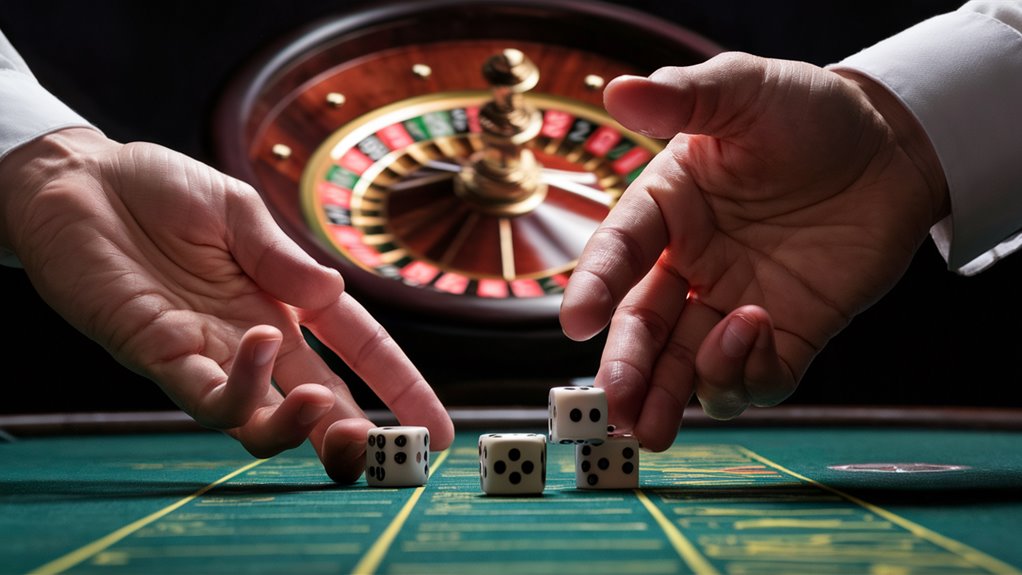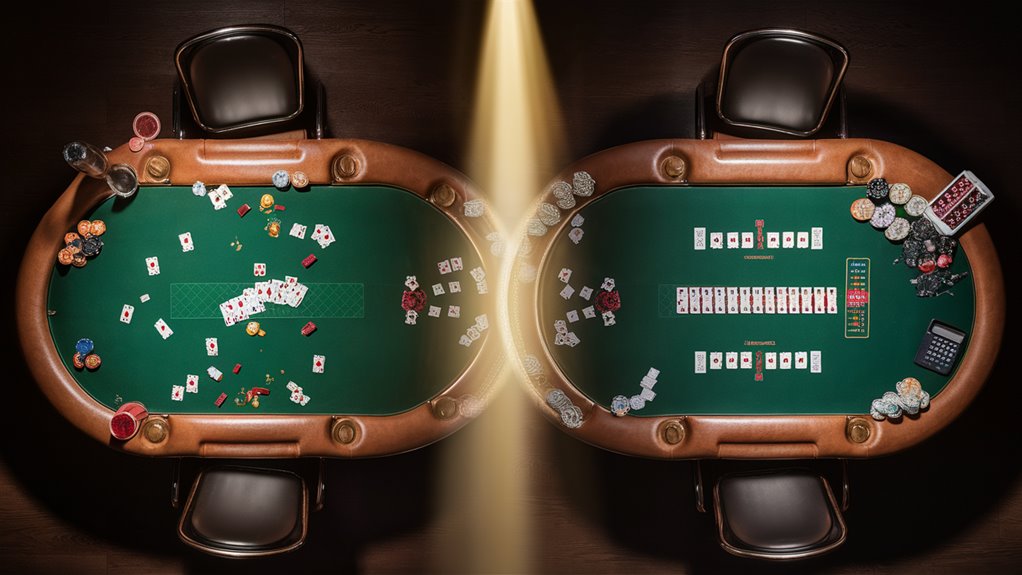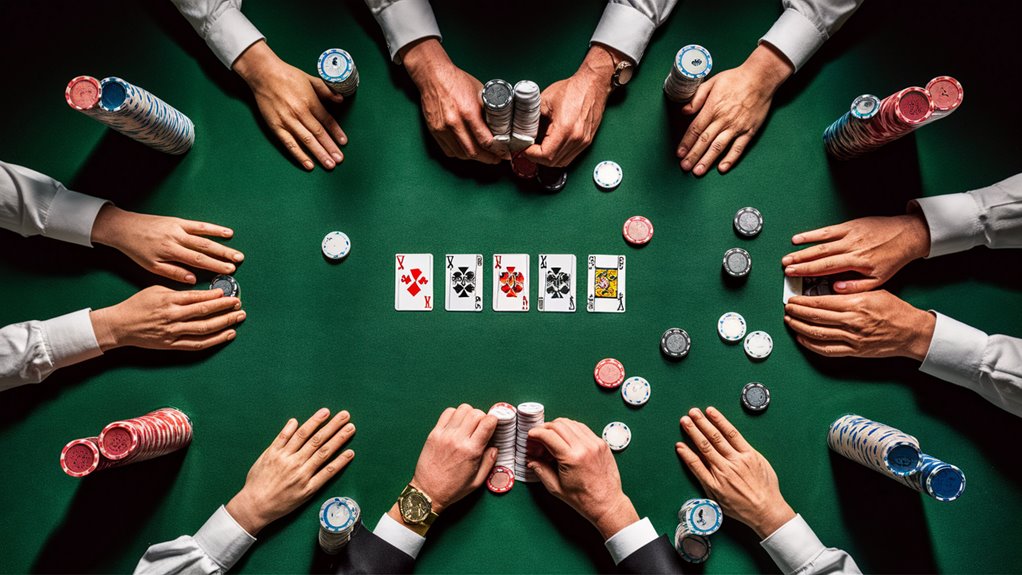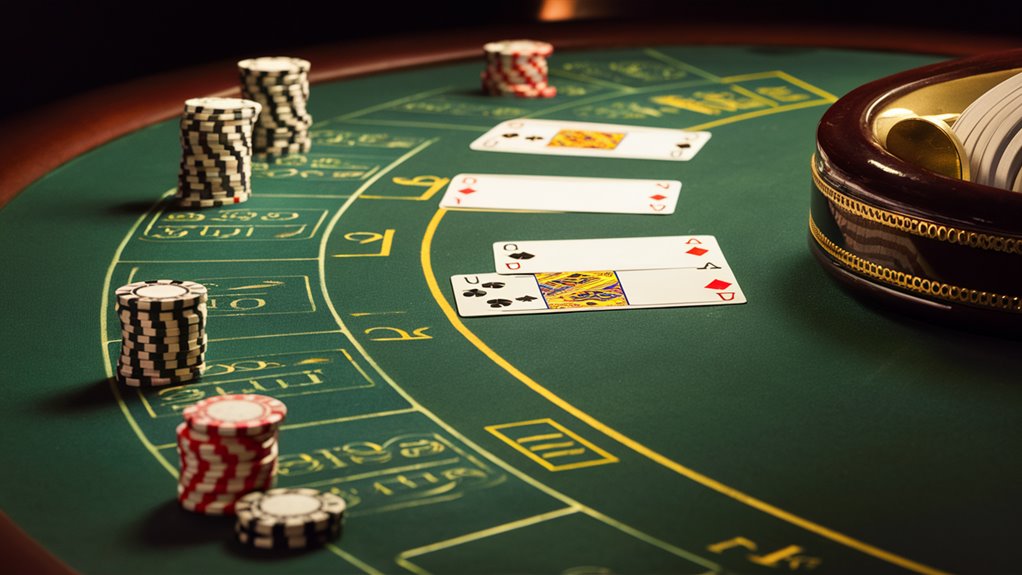Is Gambling a Skill or a Game of Chance?

The link between skill and chance in gambling sits on a wide scale, changing a lot among different kinds of games. Knowing this mix is key for all players, fun or serious.
Pure Chance Games
Casino slot machines work just by random number generators, with return-to-player (RTP) rates from 85-98%. These games are all about chance, with results set by luck not player moves.
Skill-Based Gaming
Poker and sports betting are known for needing good game plans. Top players use:
- Stats
- Chance maths 이 자료 참고하기
- Mind tricks
- Spotting patterns
- Money control
The Evidence of Skill
Success in pro gambling shows that skilled play can lead to sure money. Studies show that 15-30% of problem gambling goes down when players really get the skill-chance link in their games.
Legal Classification
Game laws use the “main factor test” to sort gambling types. This method checks if skill or chance is what mainly decides game results, affecting how games are ruled and taxed.
Game-Specific Mechanics
Each gambling style has its own mix of skill and chance:
- Table games: Some skill needed
- Card counting: Needs lots of skill
- Sports bets: Needs deep know-how
- Electronic games: Little skill needed
Knowing these details helps in making good play plans and keeping gaming safe.
Defining Skill vs. Chance
Understanding Skill vs. Chance in Gambling
Defining Core Parts of Gambling Games
Gambling games mix skill and chance in deep ways, needing clear definitions and study.
Skill-based games very much rely on results that players can change with their know-how, hard work, and smart moves.
Main parts include spotting patterns, deep math, and careful study of others’ play.
Features of Chance-Based Gaming
Pure chance games just work on luck, beyond what players can do.
Random setups and real twists lead games like roulette and slots, making truly unknown results that defy plans.
The Skill-Chance Mix in Modern Gambling
Complex Blend Games
Poker shows a deep mix of skill and chance, putting together smart bets and reading others with the luck of the draw.
Like that, sports betting needs top data skills but still hangs on game surprises.
Plan Effects
Knowing the skill-chance mix really matters for:
- Risk rules
- Strategy making
- Staying in line with laws
- How players approach
This key split shapes all gambling calls and long-run wins, asking for a sharp look at what can be controlled and what falls to chance in many game types.
Pure Games of Chance
Pure Games of Chance: Know Random Luck in Gambling
Explaining Pure Chance Games
Pure chance games are gambling types where random luck picks all results, with no room for skill moves.
Big examples are slots, roulette, and lottery games, where random events fully lead, cutting out any player effect through plans or past play.
Tech and Random Number Making
Today’s gambling uses strong Random Number Generators (RNGs) for fully unsure results.
Slot machine codes use detailed RNG setups for each spin’s end.
Roulette wheels work through tight physical parts where math and physics set where the ball stops.
Lottery tools use computer random picks or machine systems for picking numbers.
Math Chance and House Edge
Set chance rates run these games with exact math rules.
The house edge in European roulette stays at 2.7%, and American roulette at 5.26%.
Slot machine programming puts in place exact Return-to-Player (RTP) rates, usually from 85% to 98%. These set odds stay the same, making betting styles, timing, or lucky thoughts useless against the basic luck of these games.
Main Points of Pure Chance Games
- All about random luck
- No skill parts
- Set math odds
- Steady house edge rates
- Auto random number making
- Ruled payout setups
Games Needing Player Skill
Games of Skill in Gambling: A Smart Look

Grasping Skill-Based Gambling Types
Strategic gambling games need lots of know-how, smart thinking, and math skill for sure wins.
Poker is a top example, where pros show they’re better through smart spots, chance math, and mind games. Top players like Daniel Negreanu have made millions by nailing these key parts.
Sports Betting and Stats
Winning at sports bets hangs on full stats analysis, deep team know-how, and seeing where the market slips.
Pro betters build smart math models using:
- Past play data
- Top player facts
- Event specifics
- Good bet chances
Deep Game Know-How
Blackjack plans show another chance for skill play through methods like card counting and best moves.
While casinos don’t like these smart play ways, the math edge is clear for those who know the game well.
Signs of Long-Run Wins
The skill part in these games shows in steady win rates over lots of plays. Big win bits include:
- Good at chance theory
- Smart risk rules
- Using game theory
- Getting better at spotting patterns
Top-level skill needs lots of study, real plays, and keeping cool. How skilled and just-for-fun players do over time really shows who knows their stuff and who just tries their luck.
The Legal Gambling Sort Debate
Know Legal Gambling Sorts: Skill vs. Chance
The Main Factor Test in Gambling Law
Legal gambling sorts have grown through many court calls and law moves, mostly about telling skill games from chance games.
The well-used main factor test is key in rules everywhere, needing that luck must be over 50% of a game’s result to call it gambling.
State-Specific Sorts and Rules
State gambling laws change a lot in how they label games. Big differences show in how places sort well-known gambling types:
- New Jersey says poker is a game of chance
- Montana sees poker as skill-based
- Other states have their own views that touch how they give licenses and run things
Effects on Today’s Gaming
The sort debate really touches old card games and new gaming types:
- Poker spots face different rules
- Fantasy sports shift with local views
- Esports betting tests old sort ways
Rule Effects and Industry Impacts
These sorts shape:
- What you need for a license
- How they tax
- How to run things
- Ruling needs
The non-stop changes in gambling types keep pushing old sort ways, making law makers tweak rules for new game types.
Mind Works Behind Gambling Picks
The Mind Behind Gambling Choices
Knowing Mind Tricks in Gambling
The mind side of gambling shows a deep mix of thought ways that shape how people see risk, think of possible wins, and make choices when not sure.
Mind slips really shape how we bet, with fear of loss and the feeling of control leading how we act.
How Mind Slips Play Out
A big mind pattern in betting is the better’s mistake – the wrong thought that past plays change what comes next.
Studies show that 70% of players see near-wins as signs they’ll win soon, even though these don’t change the odds of what follows.
Brain Reactions to Gambling
Brain changes during betting look like addiction signs, mainly in the dopamine reward setup.
Science shows that changing win times, where wins come by chance, hook players more than set wins. This brain response shows why slots, with their unsure win ways, often pull in more play than games with known odds.
Choosing Under Uncertainty
The mind works behind gambling explain why players may not always make smart picks, even when they know the game well.
These deep mind bits join with brain responses to start strong action patterns that can push aside smart thinking in betting games.
Effects on Safe Gaming Moves
The Effects of Safe Gaming Moves on Today’s Gambling
Seeing Mind Tricks in Safe Gaming
Deep behavior study has changed how game places use safe gaming moves.
New casinos and online spots use smart watch tools to check how players act and spot possible betting issues before they grow.
Key Bits of Good Gaming Safety
Data-Led Help Plans
Places using full player safety get the double nature of skill and chance, letting them help better.
Needed safety steps include:
- Cool-off times
- Limits on putting in money
- Ways to opt out
- Smart play checks
Main Watch Points
Safe gaming moves focus on three key points:
- Watching time played
- Watching money spent
- Checking how players act Casino Is Licensed and Regulated
Clear Effects on Problem Gambling
Research shows that places using full safety steps have seen 15-30% less problem gambling.
This fact-backed way shows knowing the mind parts of gambling links right to good harm-cut results.
Top Protection Tech
New spots use AI-led watching systems that:
- Track how players act
- Spot risk signs
- Start help on their own
- Give help right when needed
These data-led safety moves keep getting better, setting new marks in safe gaming acts and keeping players safe.


